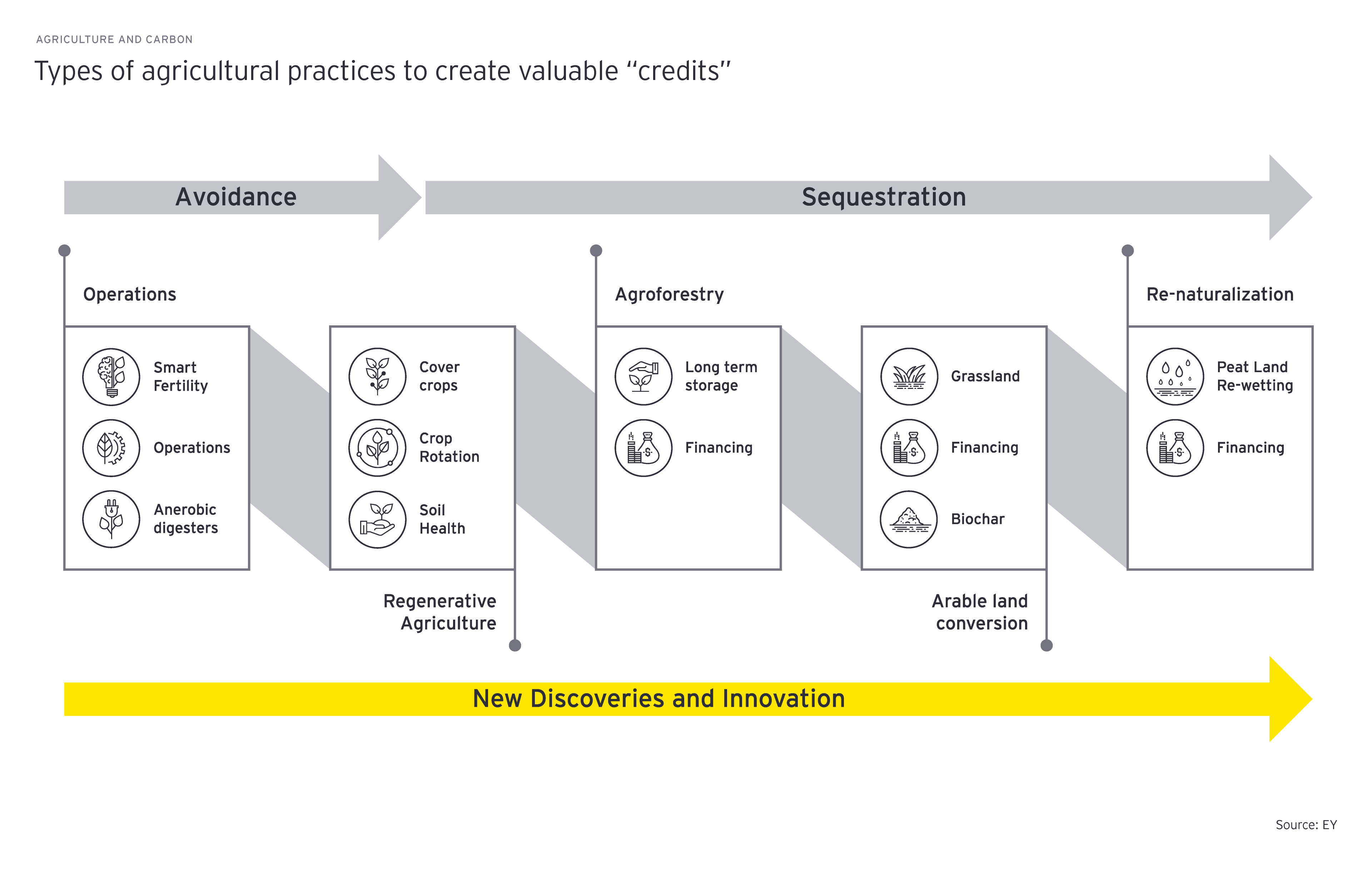Carbon farming refers to techniques designed to sequester carbon in the soil or avoid the production and release of carbon. Some of the known methods include the use of cover crops, no-till techniques, smart fertility solutions, limiting anaerobic digesters or switching to rotational grazing. New discoveries and innovative approaches are set to offer further ways to sequester carbon in soil. Carbon farming can be complemented by other mechanisms, such as systems to certify and incentivize good practices around deforestation or water quality.
Let’s put this into context. What almost every farm has in common is the huge expanse of soil at its disposal. Soil is an efficient carbon sink, with huge capacity to store carbon over time. A skilled farmer can use carbon farming to manage the carbon pool, flows and greenhouse gas fluxes at farm level with the purpose of mitigating climate change and building sustainable farming practice. Combining evolving data-driven agriculture with carbon farming practices has potential to solve multiple challenges around food security strategies across the globe.
All players in the agribusiness and food ecosystem – farmers, seed suppliers, crop protection and input players, processors, equipment manufacturers, food manufacturers – have an opportunity to participate in and contribute to the progress of carbon farming. But beyond the immediate agriculture landscape, the potential of carbon farming has not gone unnoticed. The question is how to bring together the needs of farmers, governments and other stakeholders.



